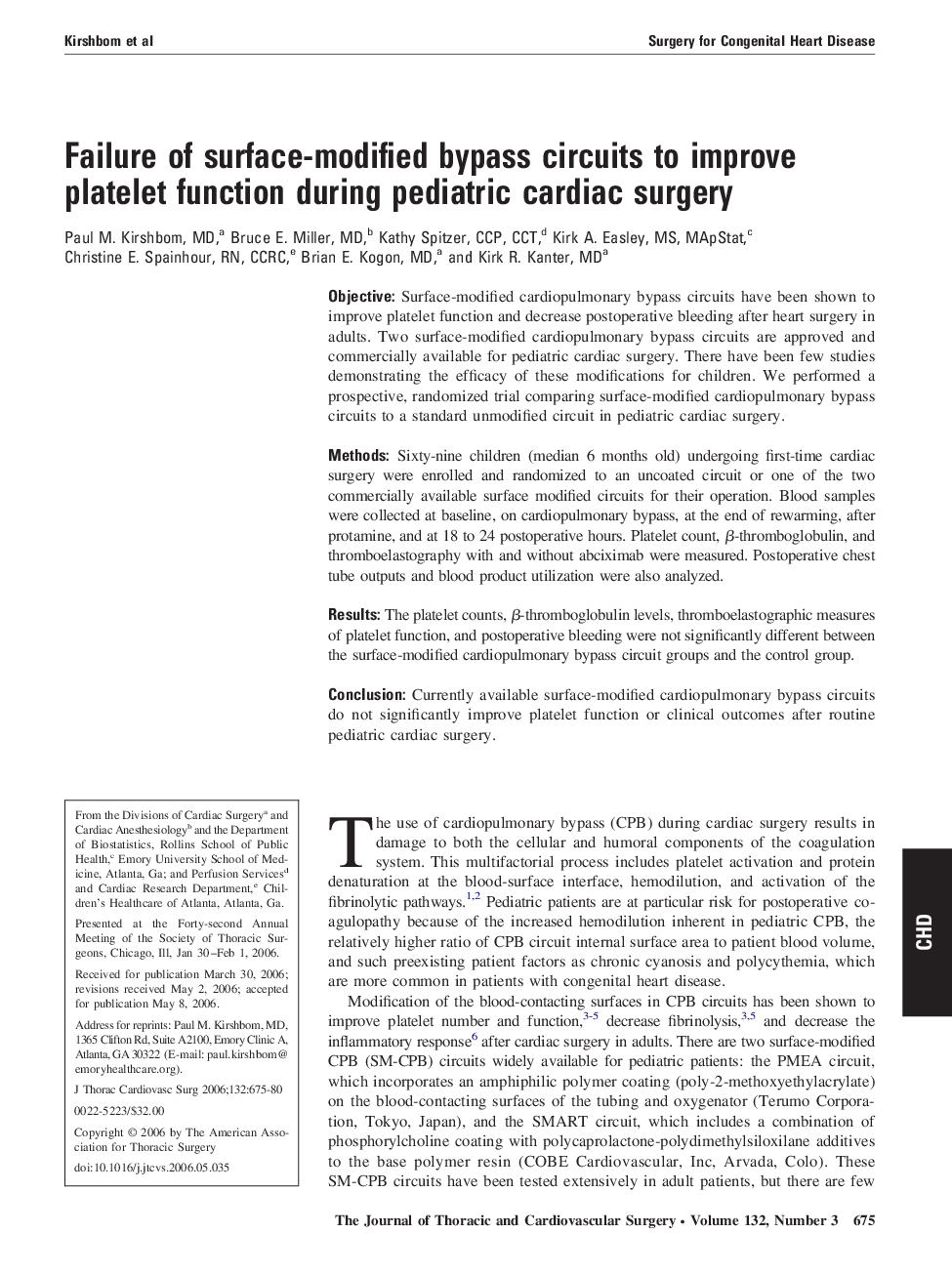| Article ID | Journal | Published Year | Pages | File Type |
|---|---|---|---|---|
| 2986687 | The Journal of Thoracic and Cardiovascular Surgery | 2006 | 6 Pages |
ObjectiveSurface-modified cardiopulmonary bypass circuits have been shown to improve platelet function and decrease postoperative bleeding after heart surgery in adults. Two surface-modified cardiopulmonary bypass circuits are approved and commercially available for pediatric cardiac surgery. There have been few studies demonstrating the efficacy of these modifications for children. We performed a prospective, randomized trial comparing surface-modified cardiopulmonary bypass circuits to a standard unmodified circuit in pediatric cardiac surgery.MethodsSixty-nine children (median 6 months old) undergoing first-time cardiac surgery were enrolled and randomized to an uncoated circuit or one of the two commercially available surface modified circuits for their operation. Blood samples were collected at baseline, on cardiopulmonary bypass, at the end of rewarming, after protamine, and at 18 to 24 postoperative hours. Platelet count, β-thromboglobulin, and thromboelastography with and without abciximab were measured. Postoperative chest tube outputs and blood product utilization were also analyzed.ResultsThe platelet counts, β-thromboglobulin levels, thromboelastographic measures of platelet function, and postoperative bleeding were not significantly different between the surface-modified cardiopulmonary bypass circuit groups and the control group.ConclusionCurrently available surface-modified cardiopulmonary bypass circuits do not significantly improve platelet function or clinical outcomes after routine pediatric cardiac surgery.
